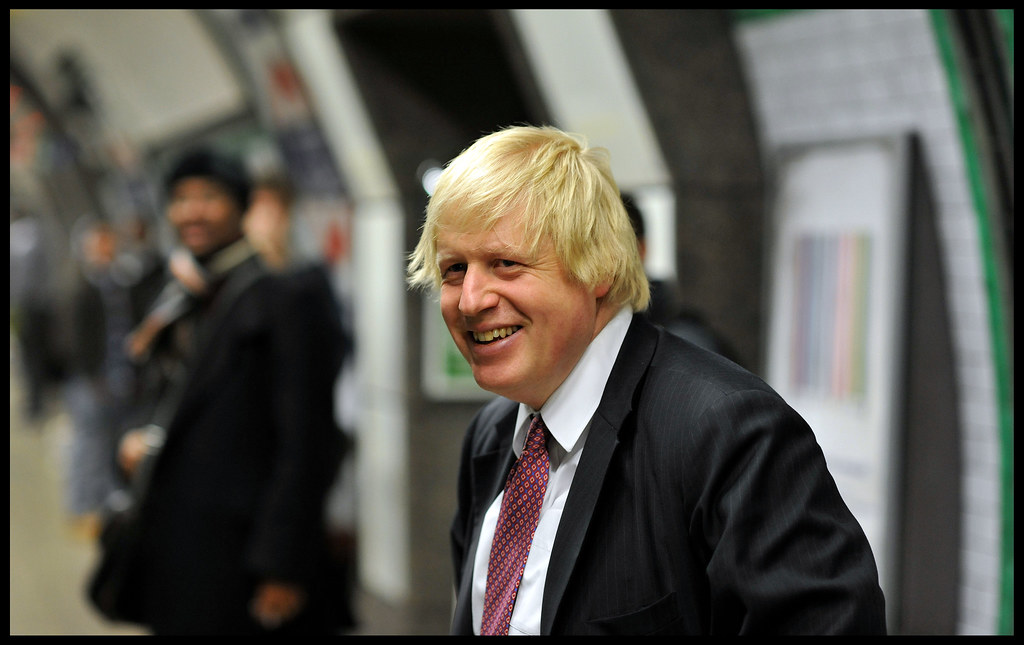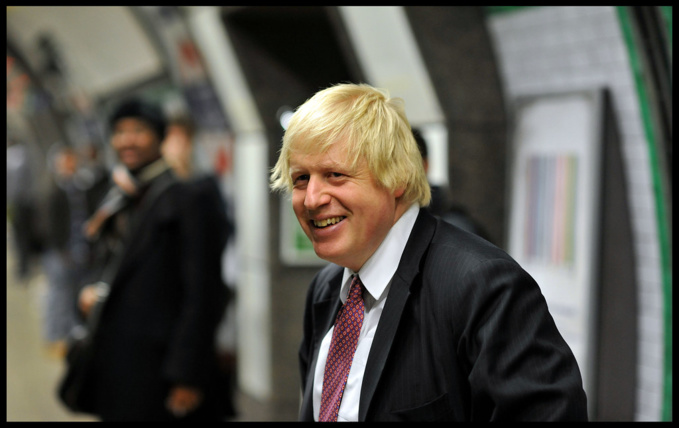Boris Johnson has become the new leader of the ruling Conservative Party. This was announced on Tuesday by Cheryl Gillan, acting chairman of the 1922 Committee, which brings together Conservative deputies who are not members of the government. After that, Mr. Johnson made a short speech at the Queen Elizabeth Conference Center two steps away from Parliament. “Today, at a turning point in our history, we must reconcile in ourselves two noble instincts: friendship with European allies and the simultaneous desire for self-government in this country... I do not believe that these two desires are incompatible,” he assured.
It was Boris Johnson who was originally considered the favorite of the party election race. Now, the former British Foreign Minister and former Mayor of London will become the leader of the Conservatives, but also Prime Minister of the country. At the same time, Mr. Johnson came to power on the basis of an internal party vote. Prime Minister was actually chosen only by 160 thousand conservatives. Professor Tim Bale of the Queen Mary University of London imagines them like "White, elderly, rich."
From the very beginning, Boris Johnson was a prominent figure in the campaign for leaving the European Union, and after - a loud critic of the Brexit deal prepared by Mrs. May. He promised his voters to resume negotiations with Brussels so that Britain would leave the EU on more favorable terms for London. Previously, he also criticized the so-called backstop - the mode of stay of Northern Ireland as part of the EU Customs Union and the single European market after the onset of the Brexit transition period.
In addition, the politician promised not to pay £ 39 billion ($ 50 billion) to Brussels unless London ensures a new agreement.
In any case, with or without a deal, the United Kingdom will leave the European Union on October 31, according to Boris Johnson. This date was agreed upon earlier by London and Brussels.
The position of Boris Johnson has already resulted in a number of resignations. So, Finance Minister Philip Hammond announced his decision to voluntarily leave his post. He is considered the leader of the camp of supporters of maintaining close ties with the EU. Earlier, Mr. Hammond said that he would never have signed up for an exit without a deal on October 31.
Another issue is the future of relations between London and Washington. Recall that the US President Donald Trump had a difficult relationship with Teresa May: Head of the White House earlier criticized her in speeches and on his page on Twitter. The attitude to Boris Johnson is different. Donald Trump has already expressed his desire to "see Johnson at the site of the UK prime minister." He, in turn, spoke of the importance of signing a free trade agreement with the United States, which would compensate for Britain’s possible losses from leaving the EU. In this regard, it is worth noting the recent silence of Mr. Johnson about the scandal around the British ambassador in Washington, Kim Darroch. The conflict erupted after the leak of confidential diplomatic messages from the ambassador, in which he described the Trump administration as "incapable and sloppy", which caused the anger of the US President. The story of the resignation of the ambassador under pressure from the Americans was interpreted by many Britons as a national humiliation, but Boris Johnson, unlike, for example, Theresa May, refused to publicly support Mr. Darroch.
source: bbc.com, reuters.com
It was Boris Johnson who was originally considered the favorite of the party election race. Now, the former British Foreign Minister and former Mayor of London will become the leader of the Conservatives, but also Prime Minister of the country. At the same time, Mr. Johnson came to power on the basis of an internal party vote. Prime Minister was actually chosen only by 160 thousand conservatives. Professor Tim Bale of the Queen Mary University of London imagines them like "White, elderly, rich."
From the very beginning, Boris Johnson was a prominent figure in the campaign for leaving the European Union, and after - a loud critic of the Brexit deal prepared by Mrs. May. He promised his voters to resume negotiations with Brussels so that Britain would leave the EU on more favorable terms for London. Previously, he also criticized the so-called backstop - the mode of stay of Northern Ireland as part of the EU Customs Union and the single European market after the onset of the Brexit transition period.
In addition, the politician promised not to pay £ 39 billion ($ 50 billion) to Brussels unless London ensures a new agreement.
In any case, with or without a deal, the United Kingdom will leave the European Union on October 31, according to Boris Johnson. This date was agreed upon earlier by London and Brussels.
The position of Boris Johnson has already resulted in a number of resignations. So, Finance Minister Philip Hammond announced his decision to voluntarily leave his post. He is considered the leader of the camp of supporters of maintaining close ties with the EU. Earlier, Mr. Hammond said that he would never have signed up for an exit without a deal on October 31.
Another issue is the future of relations between London and Washington. Recall that the US President Donald Trump had a difficult relationship with Teresa May: Head of the White House earlier criticized her in speeches and on his page on Twitter. The attitude to Boris Johnson is different. Donald Trump has already expressed his desire to "see Johnson at the site of the UK prime minister." He, in turn, spoke of the importance of signing a free trade agreement with the United States, which would compensate for Britain’s possible losses from leaving the EU. In this regard, it is worth noting the recent silence of Mr. Johnson about the scandal around the British ambassador in Washington, Kim Darroch. The conflict erupted after the leak of confidential diplomatic messages from the ambassador, in which he described the Trump administration as "incapable and sloppy", which caused the anger of the US President. The story of the resignation of the ambassador under pressure from the Americans was interpreted by many Britons as a national humiliation, but Boris Johnson, unlike, for example, Theresa May, refused to publicly support Mr. Darroch.
source: bbc.com, reuters.com



















